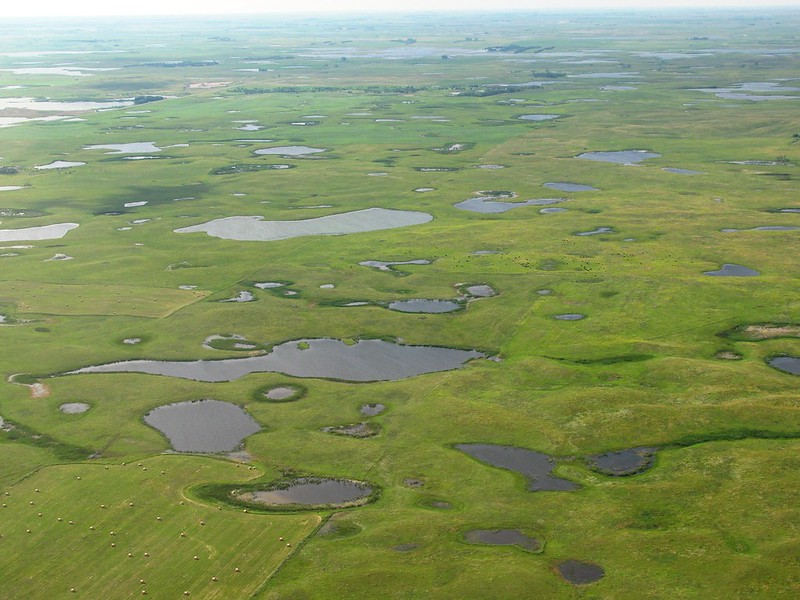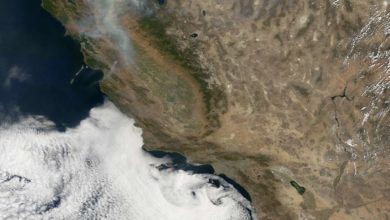Tina Landis is the author of the book Climate Solutions Beyond Capitalism.
Following on the heels of a Supreme Court ruling in Sackett v. EPA in May, the Biden administration recently approved an amendment that weakens Clean Water Act protections for wetlands. The EPA regulation language on wetlands was amended — while excluding the standard public review process — with EPA administrator Michael Regan stating there was “no alternative” due to the court’s ruling.
Language in the Clean Water Act will now designate wetlands under EPA protection as those with a “continuous surface connection” to larger, regulated bodies of water. This amendment will impact over 50% of wetlands in the United States – nearly 118 million acres — that do not have year-round surface waters connecting to rivers, lakes or oceans, even where they are connected through underground waters.
In Sackett, the court sided with an Idaho couple who claimed the EPA impeded their private property rights by blocking them from filling in a wetland area on their property. Like many rulings over the past few years, the politicized, right-wing court has ruled against what is beneficial to the majority and to long-term sustainability, such as their rulings on abortion rights, affirmative action, the EPA’s ability to regulate carbon emissions and more.
Despite claims from the Biden administration and the EPA that their hands are tied, the Sackett ruling — along with any other Supreme Court rulings — could be overturned by Congress if the political will existed to do so. While many individual states could pass their own protections for wetlands that supersede the EPA regulations, 20 U.S. states have statutes in place that prohibit them from having regulations that are more stringent than federal regulations. Environmental organizations, Native tribes and others are opposing the Supreme Court ruling and EPA regulation change, and there are likely to be lawsuits against this rollback of wetland protections.
Why wetlands are important
More than 50% of U.S. wetlands have been destroyed since colonization began. Why does this matter? Who wants a swamp in their backyard anyway?
Developers and agricultural interests have led the charge of draining, filling in and paving over wetland areas, which are everything from ephemeral vernal pools, swamps, bogs, and coastal salt marshes, to waterlogged floodplains around rivers and lakes. Many wetlands disappear above ground during dry times and re-emerge during rainy periods. All wetlands are crucial to flood prevention and drought, acting as sponges for rainfall and holding water above or below ground during dry times to continue feeding plant life. Just one acre of wetland can store over one million gallons of flood waters.
Wetlands also act as the kidneys of the earth, slowing water and filtering out pollutants, preventing fertilizer run-off from reaching larger water bodies and locking chemical pollutants into the soil. They are also crucial wildlife habitats, supporting some of the densest biodiversity on the planet and accounting for 40% of the planet’s biodiversity. Of the 12 million waterfowl that inhabit the United States, two-thirds reproduce in midwestern wetlands. Wetlands also play a crucial role in the life cycle of 70% of commercially harvested fish and shellfish in the country.
As our climate continues to warm and extreme weather, wildfires and droughts worsen, we must use every tool at hand to slow and eventually reverse the crisis if humanity is to survive. Wetlands are a key climate change mitigation tool. Coastal wetlands protect coasts from storm surge, diminish the power of waves and absorb rising seas. They also lock in carbon drawn from the atmosphere — about one-third of carbon globally is stored in wetlands — which is then released back into the atmosphere when these habitats are drained or disrupted. Coastal wetlands sequester carbon at a rate 55 times faster than tropical rainforests. Maintaining and restoring wetlands throughout the landscape, helps cool surrounding air temperatures and the overall climate and reduces wildfire risk.
United States heading in the wrong direction
Wetlands have been recognized by the United Nations Environmental Program as vital to our survival. Head of UNEP’s Marine and Freshwater Branch Leticia Carvalho stated, “In line with the UN Decade on Ecosystem Restoration, we must stop policies and subsidies that incentivize deforestation and wetlands degradation from source to sea and promote their urgent restoration.”
Many countries are making efforts to restore and protect their wetlands, including China’s extensive sponge city program, Argentina’s protections of their peatlands – a type of wetland and a major carbon sink — and the UK’s Great North Bog restoration project.
The environmental protections that were won in the United States in the 1970s through a people’s movement against pollution and environmental degradation have been slowly whittled away, beginning with the massive defunding of the EPA under Reagan. Most recently, West Virginia v. EPA further reduced the power of the agency by blocking their ability to regulate climate-warming carbon emissions, followed by the Biden administration’s weakening of National Environmental Policy Act procedures by curtailing the environmental review process for federally-funded projects or those on federal land.
The evisceration of wetland protections is the latest in these attacks. This is the trajectory of capital in the absence of a mass, sustained people’s movement demanding otherwise. Without that mass public pressure, the courts and government side with big business and private property interests over rational, long-term planning for the wellbeing of humanity.
Socialism does the opposite through a planned economy that puts resources toward what is most needed by society and for long-term environmental sustainability. The socialist worker-led government and decision making bodies are made up of experts in their field, elected through a democratic participatory process at the grassroots level. Under socialism, it’s workers with training in science and ecology who make decisions on what environmental protections and initiatives are taken, not millionaire career politicians and justices.
The unelected, undemocratic Supreme Court — which lacks the knowledge to make decisions on what’s best for the environment — should be abolished along with the capitalist system that allows this grouping of millionaire justices to determine our fate.







